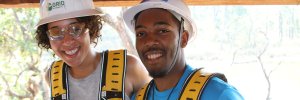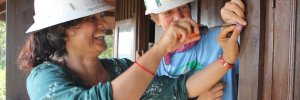Oculí (also spelled Ocusli) is a small, rural village in Nicaragua's Jinotega department. The village sits at an elevation of approximately 258 meters above sea level and is characterized by its rural agricultural landscape. This community is home to 30 families facing significant daily challenges. Nestled in a rural and agricultural setting, this community lacks access to conventional energy and potable water, essentials for a dignified and healthy life.
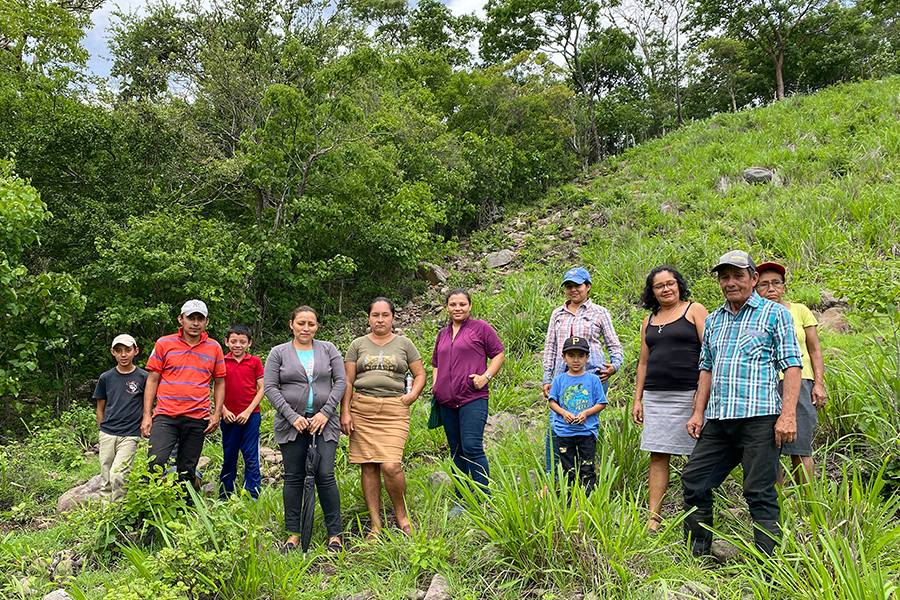
A small primary school serves 30 students among these families. These children study under the same adverse conditions as their parents: without electricity and running water. Despite these hardships, the community has shown remarkable resilience and determination.
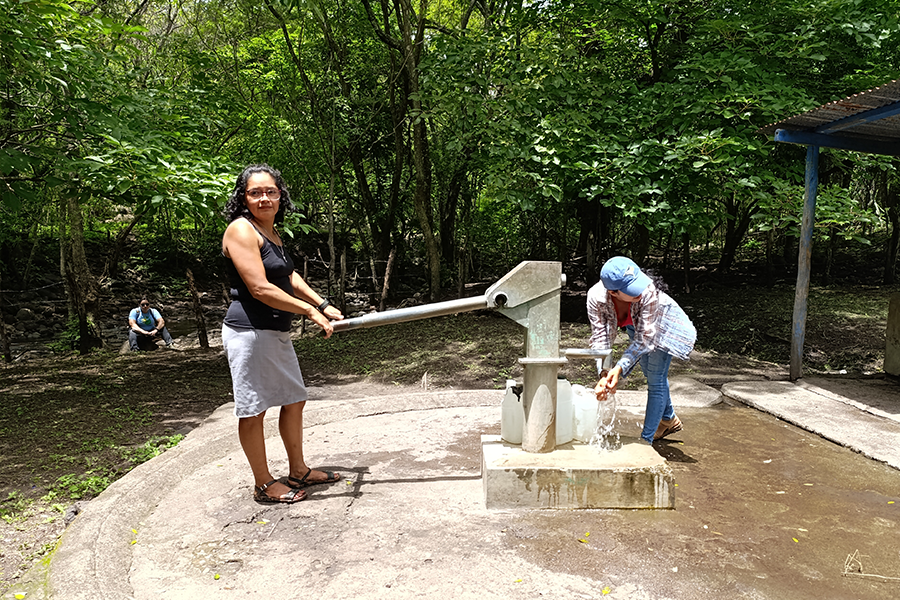
In their struggle to access potable water, the inhabitants of Oculí have drilled and lined a well, a considerable feat that showcases their adaptability and skills. However, the reality remains harsh. Though they have a manual pump to extract water, they must carry heavy buckets over a kilometer, an exhausting task that consumes much of their daily time and energy. Oculí is part of a broader network of small communities in the area. While detailed information about the village is sparse, its characteristics are typical of many rural Nicaraguan villages: it focuses on subsistence agriculture and maintains a close-knit community structure.
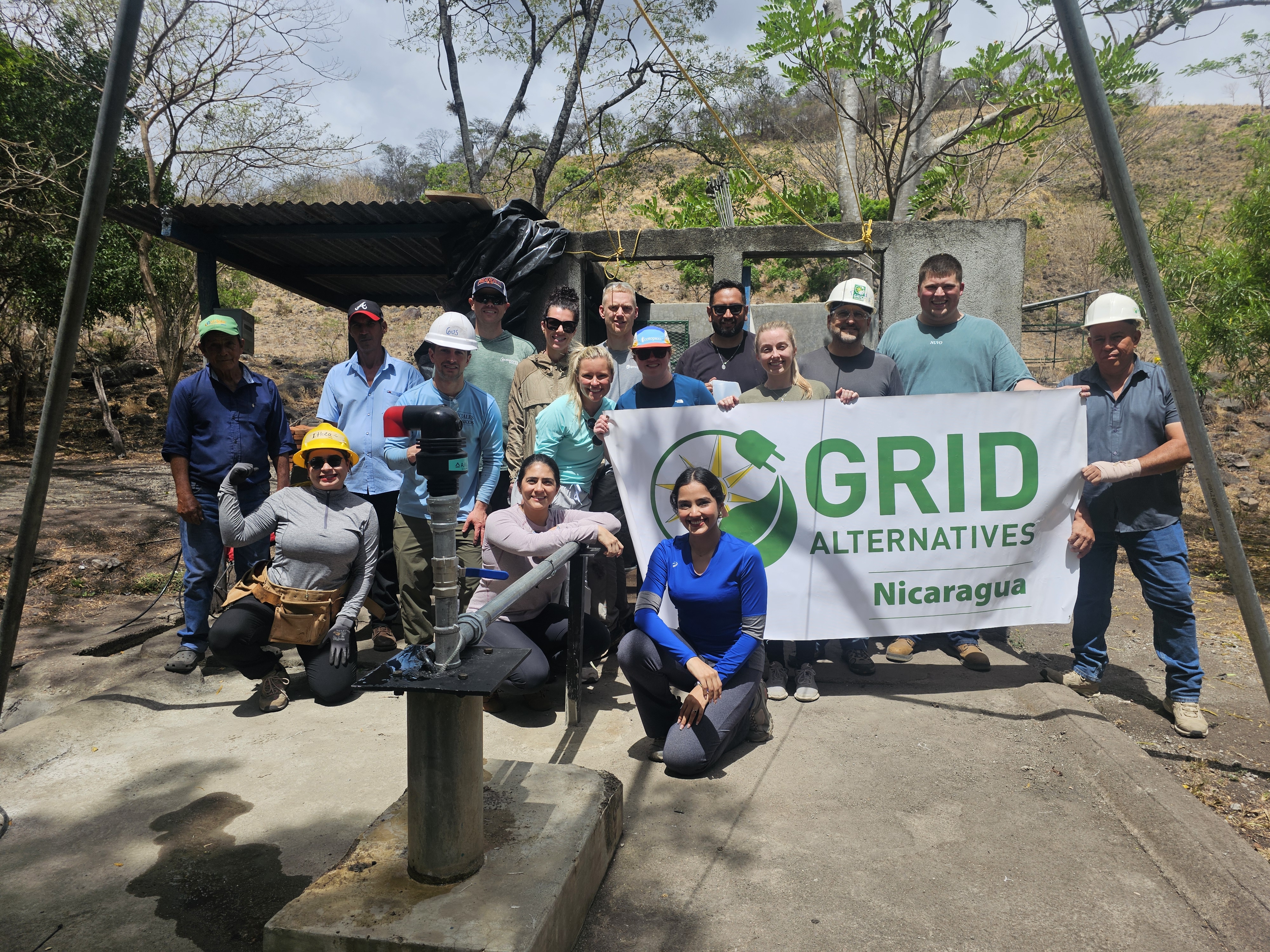
In April, 2025 GRID Alternatives' team in Nicaragua along with the community and international travelers from IGS Energy installed a 3.4kW off-grid solar electric system to pump water from a well to homes in the community. The introduction of a solar-powered water system in Oculí will save countless hours of hauling water and provide improved comfort, resilience, and safety for the many women and children who currently carry water to their homes. This innovative solution will significantly enhance the quality of life in Oculí, freeing up time and energy for more productive activities and fostering a healthier and more secure environment.
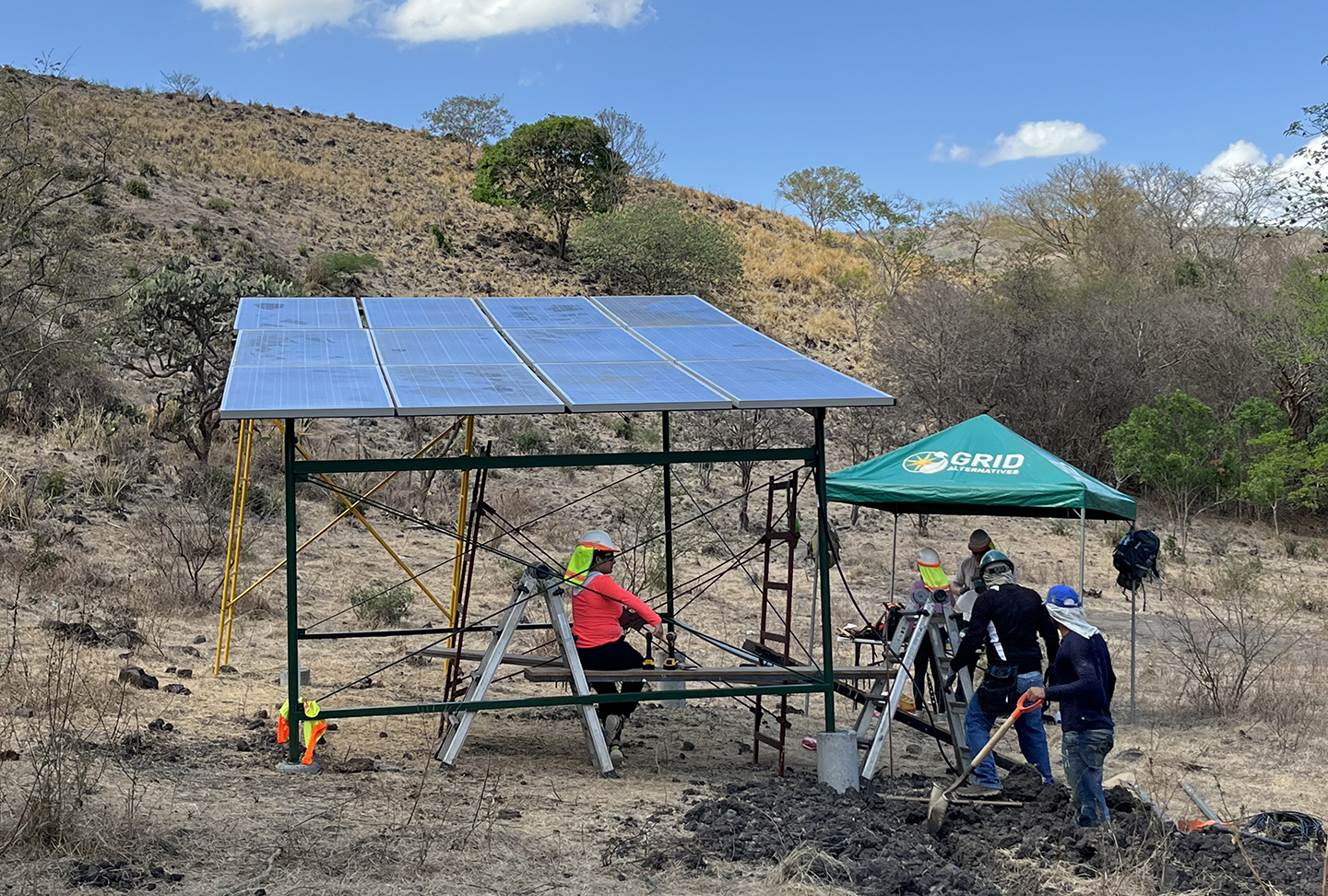
This project contributes to UN Sustainable Development Goal 6 (SDG 6), which aims to ensure the availability and sustainable management of water and sanitation for all. Families in Oculi pay a small connection fee to participate in the project and a structure called the "Water and Sanitation Committee" was created to be responsible for collecting a monthly fee to maintain both the solar system and the water supply system. Thank you to IGS Energy for supporting this project! More photos here.




